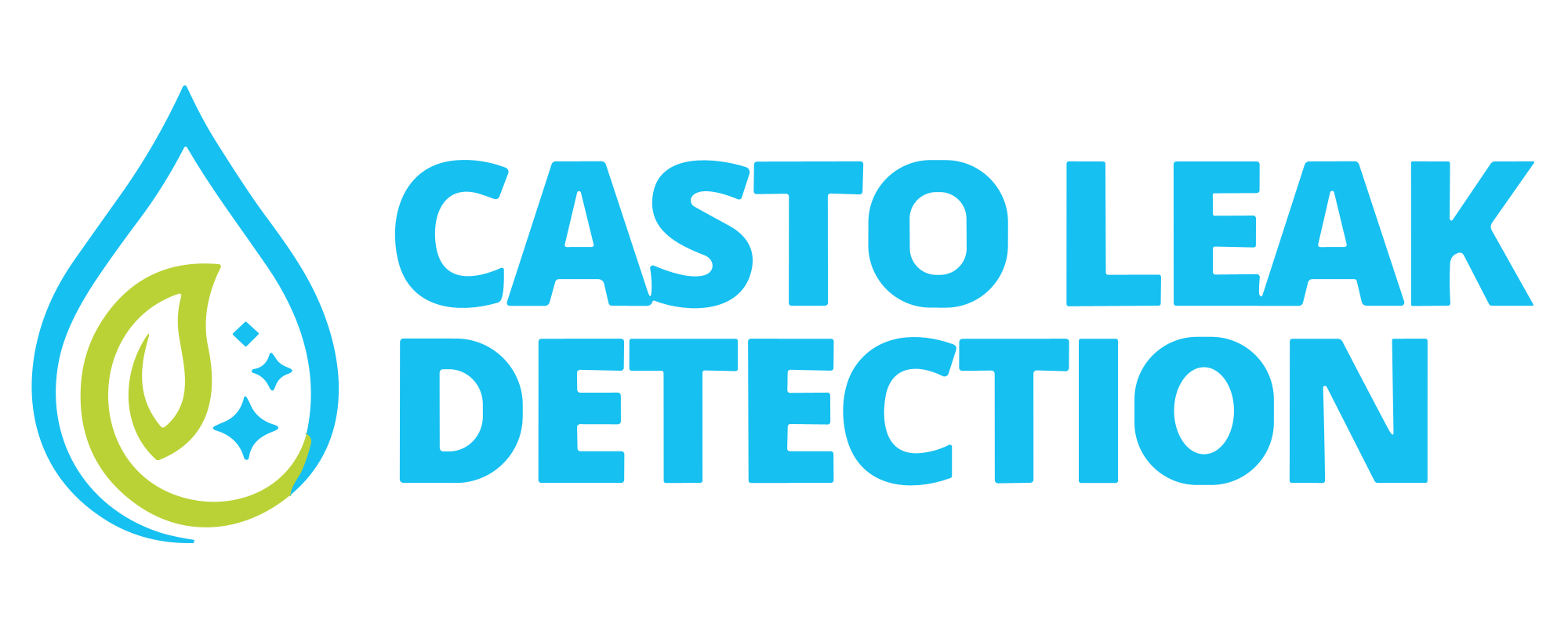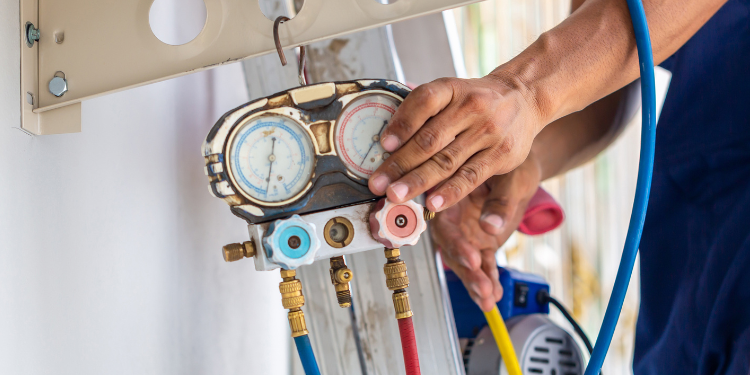Air conditioners are essential in keeping homes comfortable, especially during the sweltering summers in Richardson, Texas. However, noticing water leaking from your air conditioner can be alarming and may leave you wondering if there’s a bigger issue at hand. Understanding why this happens and how to address it promptly can save you from costly repairs and keep your home safe. At Casto Leak Detection, we’re here to help you grasp the underlying causes of air conditioner leaks and what you can do about them.
Key Takeaway: If your air conditioner is leaking water, it’s typically due to a blocked or damaged drain pipe, frozen evaporator coils, or low refrigerant levels. Addressing these issues early can prevent significant water damage and ensure your AC unit continues working efficiently.
Why Air Conditioners Leak Water
Clogged Drain Line, Frozen Coils, and Low Refrigerant
One of the most common reasons for water leaking from an air conditioner is a clogged drain line. As your AC unit cools the air, condensation forms and is usually funneled out of your home via a drain line. If this line becomes blocked with dirt, mold, or debris, the water backs up and eventually spills out.
Another reason for leaks can be frozen evaporator coils. These coils should remain warm to absorb heat from the air, but when they freeze, they can cause excessive condensation as they thaw, resulting in water leakage. Frozen coils often indicate that there is insufficient airflow over them, which could be due to a dirty air filter.
Low refrigerant levels are another issue that can contribute to leaks. When refrigerant levels are too low, the pressure in your system drops, which can cause the coils to freeze. The thawing process leads to a buildup of water, causing it to overflow from the drain pan.
How to Prevent Air Conditioner Leaks
Regular Maintenance, Cleaning Air Filters, and Checking Refrigerant Levels
Preventing water leaks from your air conditioner is often a matter of regular maintenance. One of the best ways to avoid drain line clogs is by scheduling yearly inspections with a professional, who can ensure that your system is operating correctly and clean out any buildup in the drain pipe.
In addition to professional maintenance, you can help prevent leaks by routinely cleaning or replacing your air filters. Dirty filters restrict airflow, increasing the chance of frozen coils. A simple monthly check of your filters can go a long way in preventing unnecessary water damage in your home.
Lastly, ensuring that your AC unit has sufficient refrigerant levels is vital to avoid frozen coils and leaks. If you suspect that your refrigerant is low, it’s important to contact a professional technician for a refill and system inspection.
Signs Your Air Conditioner Needs Immediate Attention
Water Stains, Unusual Sounds, and Higher Energy Bills
Water stains near your air conditioning unit are a clear sign that something is wrong. Even if the leak seems minor, it’s essential to investigate and resolve the issue before it worsens. Ignoring water stains can lead to mold growth and damage to floors, walls, or ceilings.
If you hear unusual sounds, such as gurgling or dripping, coming from your air conditioner, it’s a strong indicator that water is not flowing correctly. Addressing these sounds early can prevent a more significant leak or malfunction from occurring.
Increased energy bills may also signal a problem with your AC unit. When your system isn’t functioning correctly, such as when the coils are frozen or the refrigerant is low, your AC has to work harder to cool your home, leading to higher energy usage.
When to Call a Professional
Persistent Leaks, Electrical Damage, and Lack of Cold Air
If your air conditioner is leaking water consistently, despite your efforts to clean the drain line or change filters, it’s time to contact a professional. Persistent leaks can be a sign of a more serious underlying issue, such as a malfunctioning pump or damaged drain pan.
Water leaks can sometimes cause electrical damage, leading to short circuits or even fires in severe cases. If you notice that your AC unit is not turning on or is tripping circuit breakers, it’s crucial to get help right away.
Additionally, if your air conditioner is leaking water and no longer cooling your home effectively, a professional inspection is necessary. This may indicate a refrigerant leak or a mechanical issue that needs attention.
Common DIY Fixes for Minor Air Conditioner Leaks
Cleaning the Drain Line, Replacing Filters, and Thawing Frozen Coils
While professional help is often necessary, there are some minor issues you can handle yourself. If your air conditioner is leaking water due to a clogged drain line, you can attempt to clear it using a wet/dry vacuum. This method removes debris from the line and restores proper water flow.
Replacing dirty air filters is another easy task that can prevent leaks. By keeping the airflow unrestricted, you can avoid frozen coils and the subsequent water buildup.
If you’ve noticed frozen coils, turning off your air conditioner to allow them to thaw is a simple step you can take. However, it’s essential to identify the root cause of the frozen coils to prevent the issue from happening again.
Answering Common Questions
Why is my air conditioner leaking water inside the house? When water is leaking inside, it’s often due to a clogged drain line or frozen coils. A professional inspection can help identify the root cause.
Can a leaking air conditioner cause damage to my home? Yes, if not addressed quickly, leaking water can lead to mold growth, structural damage, and even electrical issues.
How can I prevent my air conditioner from leaking in the future? Regular maintenance, including cleaning air filters and checking the drain line, is the best way to prevent future leaks.
The Impact of Humidity
Humidity levels can play a significant role in the amount of condensation produced by your air conditioner. Higher humidity means more moisture in the air, which leads to more condensation. If your AC is not equipped to handle the increased moisture, it could result in more frequent leaks.
Humidity and Air Conditioner Leaks
When the humidity is high, your AC works harder to remove moisture from the air. This additional strain can lead to more water production, and if the drain line or pan isn’t in optimal condition, leaks can occur. Ensuring your air conditioner is well-maintained and properly sized for your home’s humidity levels can help mitigate this issue.
Seeking Expert Advice
If you’re dealing with an air conditioner leak and unsure how to proceed, it’s always best to seek professional advice. At Casto Leak Detection, our experts can inspect your system, identify the problem, and provide an effective solution. Don’t let a small leak turn into a major issue—reach out to us for reliable service.







